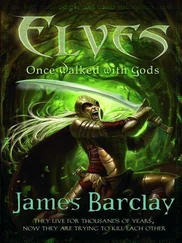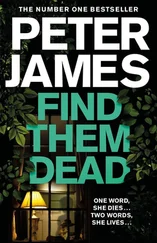During the day Mia works her teller slot and turns her head at the sound of “Me,” and she pushes through the rough days and helps tourists with directions to Four Corners, reminding them that it costs ten dollars to spread-eagle into four states and the Navajos prefer cash. Most nights Mia and Taylor study at their kitchen table, Mia pushing through math, history, and science courses, Taylor drawing or daydreaming or waiting for her phone to ring. They put on their Journey and hit Repeat, and although they concentrate on their separate worlds, they always sit next to each other, each offering an occasional leg bump to keep the other awake. Some nights Kevin comes over, even though he’s stopped taking classes, and he helps Mia with her math problems or tries to spark discussion with Taylor, who occasionally engages. While Kevin’s flaws appear — he always answers his ex-wife’s calls, he keeps a messy home and cusses too vehemently at the television when the Broncos or Avalanche lose — he hits the major checklist items: patient, knows how Mia likes to be held and touched, light drinker, good worker, educated, and takes to Taylor like a caring but not over-authoritative father. Still, even with Taylor’s blessing, Mia is conflicted about marriage. She can’t imagine — no matter how close she and Kevin get — a permanent addition to her and Taylor’s life. She’s content with companionship without the ring.
The night of community college graduation, Aunt Kathy drives up from Aztec. She brings Mia a massive white rose corsage and informs her that she’s single now and happy.
When Mia’s name is announced in the cramped auditorium, her legs go numb and she sees Mrs. Kelley tearing up and hears Kevin and Taylor scream out — it’s been so long since someone has clapped for her that the noise overwhelms her — and as she leaves the stage with the paper diploma and hugs Taylor, Mia remembers her as a newborn with a misshapen head and purple eyelids, and herself at eighteen, ignorant and somehow perfectly content to go at motherhood alone, resigning herself to hard work and modest living, and now, she realizes, she’s done something right. And not in a small way: she has raised a healthy, cheering daughter, and she has earned a diploma that says she finished something she never thought she would start.
Before she leaves the auditorium, her aunt hands her a letter.
“From your parents,” she says. “Please don’t be mad, but I’ve been keeping them up to date.”
Later that night she opens the letter. It’s her father’s handwriting.
Mia,
Mom and I are so very proud of you. It’s impossible for me to tell you how much. You are a great example for Taylor. Aunt Kathy tells us of your success, how Taylor is the smartest and most beautiful girl in the county. I should have written this letter years ago. You are always welcome here. You are wanted here. Things are different from what you remember. Better. Much better. There’s not a right or appropriate way to say we’re sorry. We regret a lot. We also remember our greatest joys are when we had you close. What I’m trying to say is that I can understand why you’d be angry. Rightfully so, Mia, but I hope the time will come when you will let us back into your life. You need to know your mother isn’t well. I don’t want to say too much, only that she may not have long to live and I wanted you to know. Her health has me thinking a lot about my life, about our family. Things I’d change and things I wouldn’t. Mia, I know it was tough for you that I was gone when you were young. I’d like to think that my time away was worth it somehow, but I’m not sure I’ll ever get there. I used to think that my choices weren’t about loyalties. That’s what I’d tell myself, but I know that’s not true. There are only choices, and I chose a job that took me away from you, your mother, and your sister, even after the accident. I don’t know what that says about me, or the old me, but I want you to know there was an honest belief in what I was doing. It may not make sense to me now, but it did then. Mia, that may not make it any easier for you, but it is what keeps me from heading back to some dark places. I don’t know if I ever was a soldier or a father. With every day that passes I feel I know myself less.
Mia, your mother and I are back at church and it’s helping in the ways we’ve needed for a long time. I am more like my father than I care to admit, and I hope that in moments of happiness you find some connection to me or your mother.
Mia, this is the most important part — we love you. Please, when the time is right for you and Taylor, please come and visit.
Dad
One summer, a couple months after Mia hears that her mother has died, she decides to drive east across the state with sixteen-year-old Taylor to visit her father during Fourth of July weekend.
When Mia tells Kevin about the trip, he asks to come along — he expects to, as they’ve been together four years — but Mia tells him no, and after a couple days of pouting he comes around to the idea and helps them pack their Honda.
Mia and Taylor leave on a Saturday, and an hour out of Cortez, Mia chooses to take a back way, and when they arrive in Woodland Park, she turns the car north on Highway 67 toward Deckers.
Taylor has been unusually silent, so Mia puts on some country music and daydreams about her father, but all that comes to her is his wheelchair, memories of a green army uniform with shiny pins, and disappointing departures.
Their route soon takes them along a small roadside stream. Mia remembers this place, and she tells Taylor about coming up here, describing the time she saw a bear, then the rock dam, and something moves in her, and she slows down at every turnoff, searching for her pile of rocks, her ninety-percent dam, but after a number of frustrating slowdowns and pull-offs, she keeps the car on the pavement, and she asks her quiet daughter what two things she would grab from a burning house, and Taylor takes a breath, then brings her hands to her face.
Before Taylor can answer, Mia considers her own response, imagines their Cortez apartment on fire, the two-room place alight, and she watches herself rush into the home to save Taylor, but when she enters, the place is empty, only fire and smoke.
Mia hears Taylor’s voice, hears the words I’m pregnant, but nothing happens for a while, just the mountain road in front of them, leading them both to a place and a father Mia used to know.
15. Wyoming Is a Gun in His Waistband
WINTRIC HOPES IT’S the girl who arrives. Let it be the girl. Let her walk the dirt road. Put her in pink pants. Put her arms up in a V. Put her in skin. Give her bones and blood. Give him her chest to target. Let him see the line of the bullet all the way through her heart. Scope that chest. Breathe that power. Squeeze that trigger.
The tomatoes are wrapped in a plastic bag on the seat next to him. He feels the onset signs — the skull-pounding pressure and muscle lock — here in the parking lot of the Holiday market. The anxiety and warped recall are near. He’s long forgotten the moment, years ago, when the memories joined the physical pain. He reaches beneath his seat and uncaps the plastic bottle. Although he has two pills in his system, he slips four more into his mouth. They’ll take a while to work, so he waits.
He doesn’t have a choice of scene, but the girl he’ll be able to process. He can tap into the decades-old mayhem and the I-die-or-you-die judgment. He can access his flurry of decisions — to squeeze the trigger, to raise his rifle, to don his uniform, to sign up for the army, to leave his hometown. Let it be the girl. Even though she’ll puncture the peace of a Wednesday afternoon, he can deal. With the drugs he can deal with a silver vest and pink pants. He was a boy then. He’s convinced himself of that. It should matter that he was there to deliver justice for attacks on American soil, but outside of a few crazies, all he saw were people searching for food. His mind grinds as it has for years: What do you call someone who kills? Murderer. What do you call someone who kills a girl? Hero. Let it be the girl. He attempts to guide his horror there, but he can’t conjure the dirt road, Big Dax and Torres at his side.
Читать дальше












